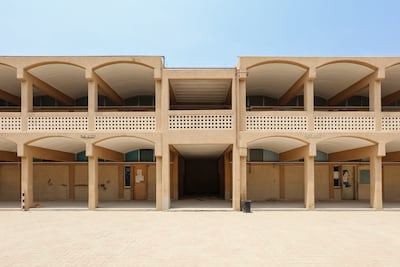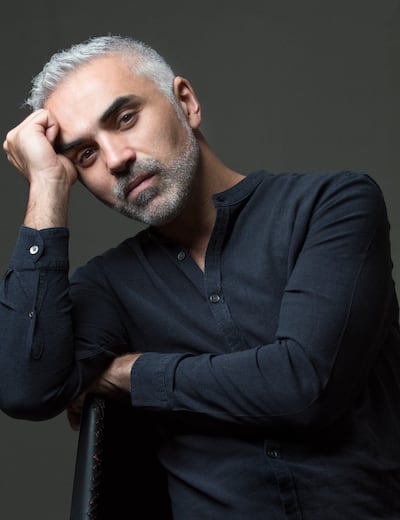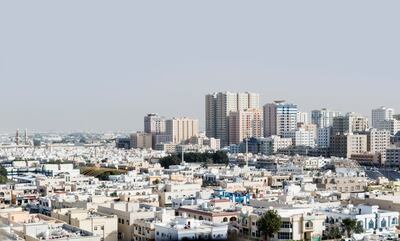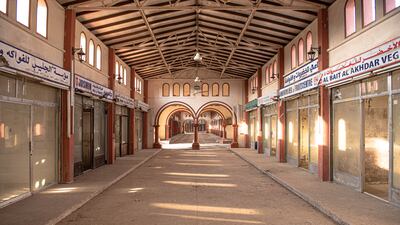The Sharjah Architecture Triennial is kicking off this weekend, marking the return of a platform that is unique in its focus on urbanism and architecture from West Asia, South Asia and Africa.
The triennial was founded in 2018 by the late Sheikh Khalid Al Qasimi. The inaugural event opened on November 9, 2019, and ran for three months.

From the outset, the triennial aimed to bring together interdisciplinary perspectives from architects, artists, anthropologists, scientists and policymakers. This multifaceted approach was key to identifying social and environment issues and exploring how architecture may bring about solutions to address them.
The first triennial was held under the theme of Rights of Future Generations, exploring life in urban areas across the Global South, as well as the long-term consequences of climate change and how the next generation will confront these problems.
It was curated by Adrian Lahoud, a renowned architect and the dean of the School of Architecture at the Royal College of Art in London.

The triennial blended exhibitions, installations and performances with screenings and panel discussions.
A handful of the projects in the triennial's first run sought to upend preconceptions about desert environments – often regarded as barren – and our approach to cultivating a lush landscape. These included models for non-irrigated urban gardens specifically suited for desert environments.
There were projects that focused on gender and politics in relation to industrialisation and urban development. Others looked towards shifting landscapes, underscoring how climate change affected communities around the world.
Besides its on-ground exhibitions, projects and performances, the triennial also has a robust series of online and print publications that complement its themes.
Participants released essays on various media platforms including on the event's website, which were then collected in a book entitled Conditions.
A second volume, Rights of Future Generations: Propositions, was then released in September 2021. It features documentation of the show alongside writings from theorists and activists.

Now in its second iteration, the programme runs until March 10, and reprises its examination of the connection between architecture and the environment, as well as the histories that inform that relationship.
The event returns to many of its repurposed venues, including the Al-Qasimiyah School and the old Al Jubail vegetable market in Sharjah. The triennial’s theme for its second run is The Beauty of Impermanence: An Architecture of Adaptability. In her curatorial statement, Tosin Oshinowo said the theme explores how issues of scarcity in the Global South have honed an ethos of reuse, reappropriation, collaboration and innovation.
“This model celebrates the use of natural materials with the understanding that repair and reconstitution are instinctive, necessary and desirable,” said Oshinowo, an architect and designer.
“It also embraces the idea that nothing can be permanent, and that everything in our environment should adapt to conditions of scarcity to match our realities and needs, thereby resulting in a progressive and evolving architecture.”

Oshinowo assembled a curatorial advisory board to augment her ambitions for the 2023 triennial. The board includes Sheikha Hoor Al Qasimi, president of the Sharjah Architecture Triennial and the Sharjah Art Foundation; Beatrice Galilee, co-founder and executive director of The World Around, a platform for architecture and design discourse.
It also includes Mariam Kamara, founder of Atelier Masomi, an architecture and research firm in Niger; Rahul Mehrotra, founder of architecture firm RMA Architects of Mumbai and Boston, and chair of the department of urban planning and design at the Harvard Graduate School of Design; British-Nigerian artist Yinka Shonibare; and Brazilian architect Paulo Tavares.
“In this edition of the Sharjah Architecture Triennial, we will explore design solutions built from conditions of scarcity and how these illuminate a pathway forward to reorient our conversation on sustainability,” Oshinowo said.
“Whereas the current global perspective on sustainability relies on technical innovation, this new perspective prioritises contextual solutions, resource sharing and waste reuse.”


